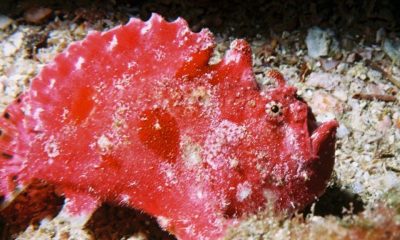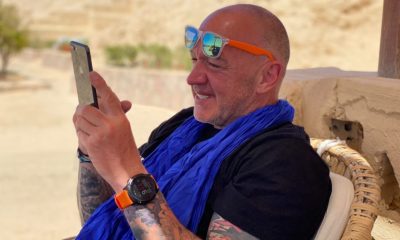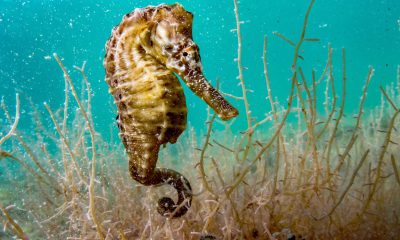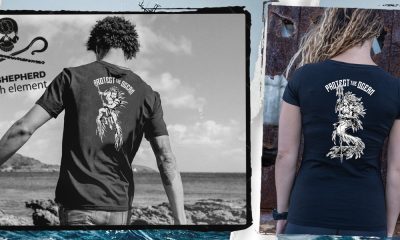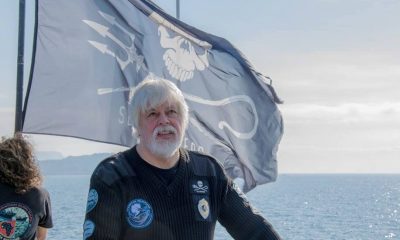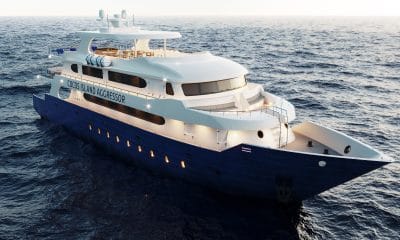News
Cocaine, Corruption, and Shark Fins
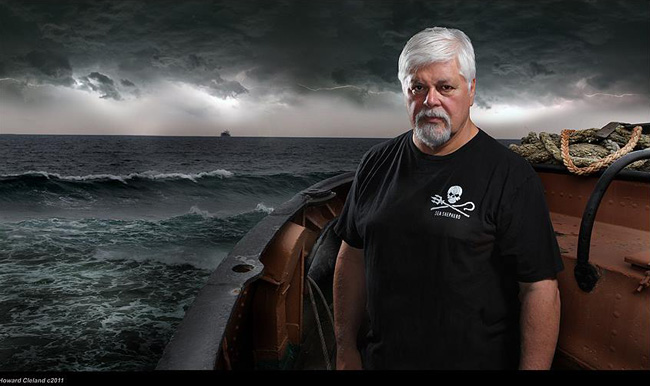
Fourteen years ago in 2001, I took my ship Ocean Warrior to Cocos Island, Costa Rica. When we arrived we found an Ecuadorian longliner, the San Jose, busily slaughtering sharks not far off the beach of the Cocos Island National Park.
The rangers were watching from the shore but not having a boat, they could do nothing.
We offered our help and together the Cocos Island rangers and the Sea Shepherd crew stopped the San Jose, confiscated many kilometers of longlines and hundreds of dead sharks. We then assisted with the arrest of the crew.
The San Jose was the first large illegal fishing boat caught and stopped in the Cocos Island Marine Reserve and the first illegal fishing vessel to be confiscated by the Costa Rican courts.
Because of that arrest, I made a formal agreement with the Costa Rican Ministry of the Environment to begin patrolling the Cocos Island Marine Reserve in partnership with the rangers beginning in 2002.
Sea Shepherd began a partnership just two years before with the Galapagos National Park and the Ecuadorian Federal Police and that partnership continues fifteen years later.
The partnership with Costa Rica never happened because a Costa Rican poaching vessel the Varadero I was caught by my crew and I in Guatemalan territorial waters in 2002 and at the request of the Guatemalan authorities, we stopped their illegal activities. No one was harmed and their vessel was not damaged.
However these eight fishermen returned to Costa Rica and accused me of trying to murder them. As a result I went to court and presented our video evidence and witnesses and the charges were dropped. A week later they charged me with eight counts of assault. Once again I went to court and once again the charges were dismissed and I was given clearance to depart Costa Rica.
I never heard another word about this until May 2012 when the German border guards arrested me in Frankfurt on a Costa Rican extradition warrant for a charge which was now stated as something called “shipwreck endangerment.”
This arrest was followed immediately by a Japanese extradition request. Japan wanted me extradited for “conspiracy to trespass” on a whaling ship and for “obstruction of business.”
Germany made the decision to extradite me to Japan which gave me no choice but to skip bail and escape to sea where I spent the next 15 months from August 2012 until the end of October 2013.
Because of the two extradition requests and the recognition of these extradition requests by Germany, I was placed on the Interpol Red List in August 2012.
No one has ever been placed on the Interpol Red List for activities that did not cause injury or death, property damage or the theft of money, state secrets, or property.
In my case, I stopped a shark finning operation in Guatemalan waters at the request of the Guatemalan government and Japan charged me because of our opposition to their illegal whaling operations (as ruled by the International Court of Justice) in the Southern Ocean.
But lets consider the Costa Rican extradition request. That incident occurred in 2002 and eight poachers from a vessel that had already been previously charged with poaching brought in a complaint after we stopped them from poaching. They had no video or photographic evidence. Sea Shepherd documented the entire incident. The accusation that we tried to murder them was ridiculous.
The charges were brought against me in the port city of Puntarenas where illegal fishing is epidemic. During the initial trial we discovered and documented the illegal landing of sharks in Puntarenas. It was not hard, the shark fins were being dried in public view. We reported the activity to the police and the authorities did nothing. Instead we were warned to not harass the fishermen.
Why would the court in Puntarenas act so aggressively to respond to a complaint by eight poachers?
There was and is more behind this and I think the motivating factor is narcotics.
With the recent revelation that a man named Gilbert Bell has been arrested and fingered as the notorious drug lord “Macho Coca” things have become clearer.
Gilbert Bell is an advisor to the Costa Rican Fisheries Institute (INCOPESCA), a government agency that has been the subject of a few criminal investigations.
More than half the INCOPESCA board is made up of representatives of the fishing industry.
In 2012 INCOPESCA’s Vice President Alvaro Moreno was fired for corruption and since 2011, the current President of INCOPESCA Luis Dobles has been under criminal investigation for failure to sanction two fishing boats accused of shark finning in 2011.
In 2014 The U.S. Coast Guard captured a Costa Rican fishing vessel and arrested three Costa Ricans and one Nicaraguan suspect off the coast of Cocos Island. The boat had 2.3 tons of cocaine on board.
“We are more concerned about these [drug trafficking] organizations infiltrating our fishermen or the fishing boats that were once dedicated to fishing and are now dedicated to the trafficking of drugs,” said Public Security Vice Minister Gustavo Mata. “Generally speaking, more of our fishermen are dedicating themselves to coca trafficking.”
However back in 2001, rangers on Cocos Island told me at that time that they were very concerned about drugs being transported on fishing vessels. This is not anything new.
Cocos Island is a waypoint for the transportation of drugs and has been for some time.
It is becoming more clear to me that our plans to come to Cocos Island in 2002 for permanent patrols represented a threat to the narco-traffickers.
Thus charges were laid against me to prevent these permanent patrols from happening. This is also the reason that our offer of two first-rate fast patrol vessels for Cocos Island has been turned down.
INCOPESCA and other people of influence in Costa Rica do not want eyes and ears anywhere near Cocos Island – not because of illegal fishing but more because of illegal shipments and at-sea transfers of drugs.
The case against me simply does not make sense. In 2002, at the request of the Guatemalan government, we stopped a Costa Rican shark-finning vessel, the Varadero I in Guatemalan waters. We caught and filmed them in the act of catching and finning sharks. We stopped them with fire hoses. No one was hurt and there was no property damage. A film crew onboard working on the documentary film Sharkwater documented the entire incident.
The eight fishermen onboard the Varadero I reported to Costa Rican authorities that we tried to murder them. They had no evidence, no documentation, just their word against the 30 Sea Shepherd crew members and independent film-makers who witnessed and documented the incident on the Ocean Warrior.
I appeared in court in 2002 and our film clearly demonstrated that there was no attempt to murder the fishermen. That charge was dismissed. A week later I was charged once again with 8 counts of assault. Once again our film disproved these charges and the charges were dismissed and I was given clearance to depart Costa Rica.
I heard nothing more until I was arrested 10 years later in Germany, this time for the charge of “shipwreck endangerment.”
The accusation as it stands now states that the incident took place in international waters yet it also states an exact position, a position that is well inside Guatemalan waters where Guatemalan law allowed us to intervene against this illegal activity. The official accusation contradicts itself stating that the incident was in Guatemalan waters and also in international waters. It can’t be both yet in the accusation it is stated as such.
The Costa Rican court states there is no evidence that the Costa Rican fishermen were poachers despite the fact that we filmed them poaching and the fact that in 2001, the Varadero I was arrested in the Galapagos (Ecuador) for illegal fishing.
The amount of time and effort that Costa Rica has invested in this case with monies from the Costa Rican people, over 13 years, is completely disproportional to a situation where no one was hurt and property was not damaged.
The obvious question is why?
For years I have thought that the courts, INCOPESCA and other government officials were protecting poachers and there is a great deal of evidence that they have in fact been protecting poachers.
Now in light of the arrest of Macho Coca however, I think it goes deeper than that. The arrest of drug lord and INCOPESCA advisor Gilbert Bell leads me to believe that this is also about protecting the narco-traffickers.
In May 2013, turtle conservationist Jairo Mora Sandoval was murdered by narco-poachers at Moins beach. This year Sea Shepherd crew protecting turtles were assaulted by poachers at the same beach. Instead of investigating the assaults, the police harassed the Sea Shepherd crew and searched the Sea Shepherd camp for drugs, scattering and damaging the property of the crew in the process.
In the case of Jairo Mora Sandoval, his killers were acquitted earlier this year by the Costa Rican Court, not because they were innocent, but because the police and the prosecution conveniently lost crucial evidence. Moins beach, where Jairo was murdered, is a beach that is frequently used to drop off drugs from Colombia and Panama.
Earlier this year Sea Shepherd had arranged with the Costa Rican Ministry of the Environment for a plan to provide assistance once again to defend Cocos Island. Sea Shepherd Global Director Alex Cornelissen was invited to meet with the Ministry and flew to San Jose from the Netherlands to do just that. However at the last minute the meeting was cancelled with the excuse being that they could not work with Sea Shepherd as long as I was wanted by the courts and Costa Rica continues seeking to extradite me.
The rangers at Cocos Island need assistance. They need a good full time patrol boat. We have such a boat – two of them in fact – and we can deploy these boats on a permanent basis to work in partnership with the rangers to stop all poaching activities in the Cocos Island Marine Reserve. We would also like to install an AIS system to monitor all vessel traffic. We installed just such a system in the Galapagos for around one million Euros and we maintain it on a permanent basis and it has been a very successful program.
However, I don’t believe that some Costa Rican government officials want eyes and ears that they cannot control anywhere near Cocos Island. They don’t want the world to see what I believe to be is a major way station in the international traffic of drugs, primarily of cocaine.
I am taking this case before the Inter-American Commission on Human Rights and we will continue to investigate just why it is that the Costa Rican government is protecting poachers and refusing to properly patrol the Cocos Islands National Park Marine Reserve.
Blogs
TRAVEL BLOG: Jeff Goodman Dives SOMABAY, Part 2
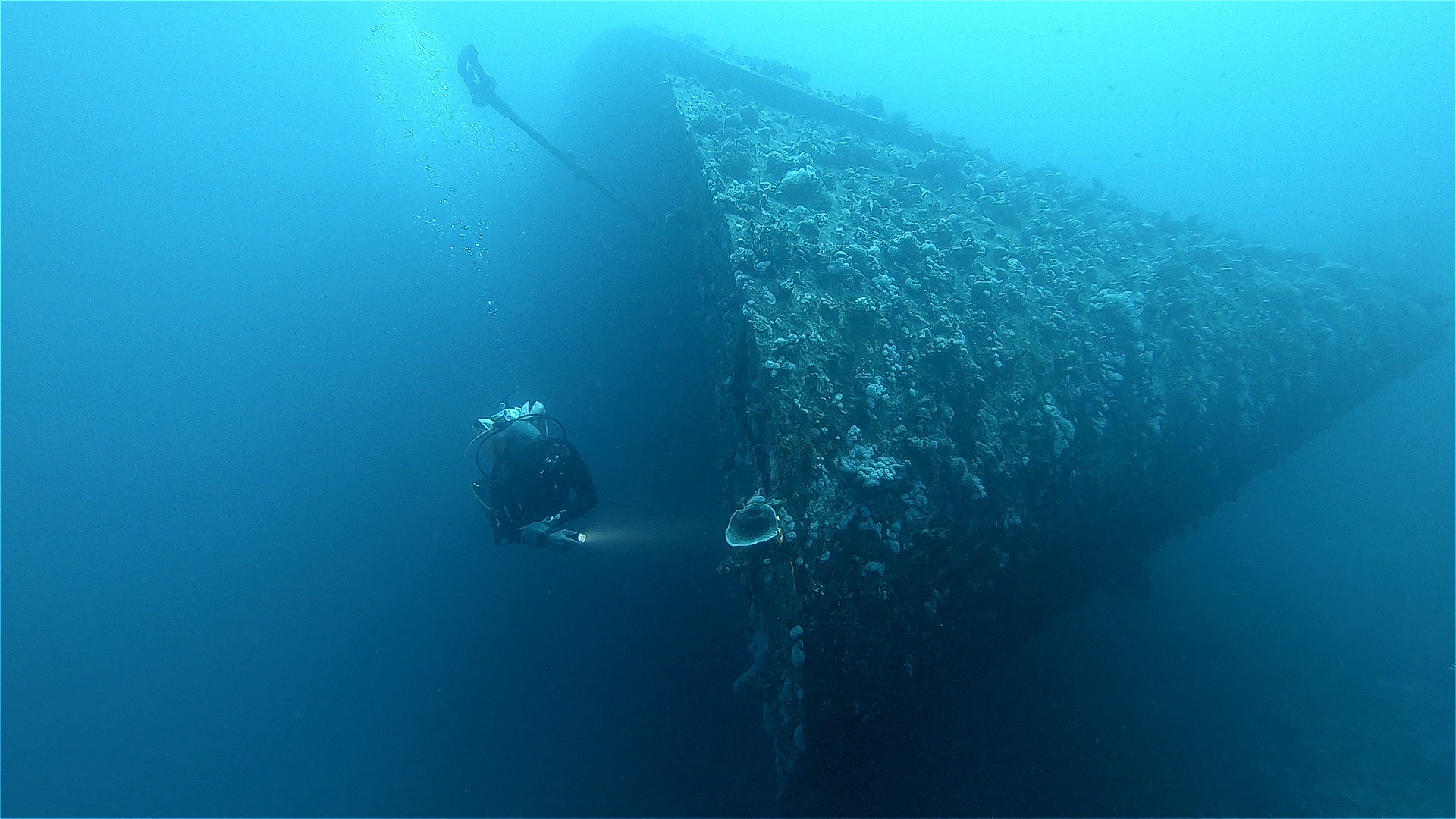
Day three of my trip to Somabay and we were spending the day on the Lady Christina and diving on the wreck of the Salem Express.
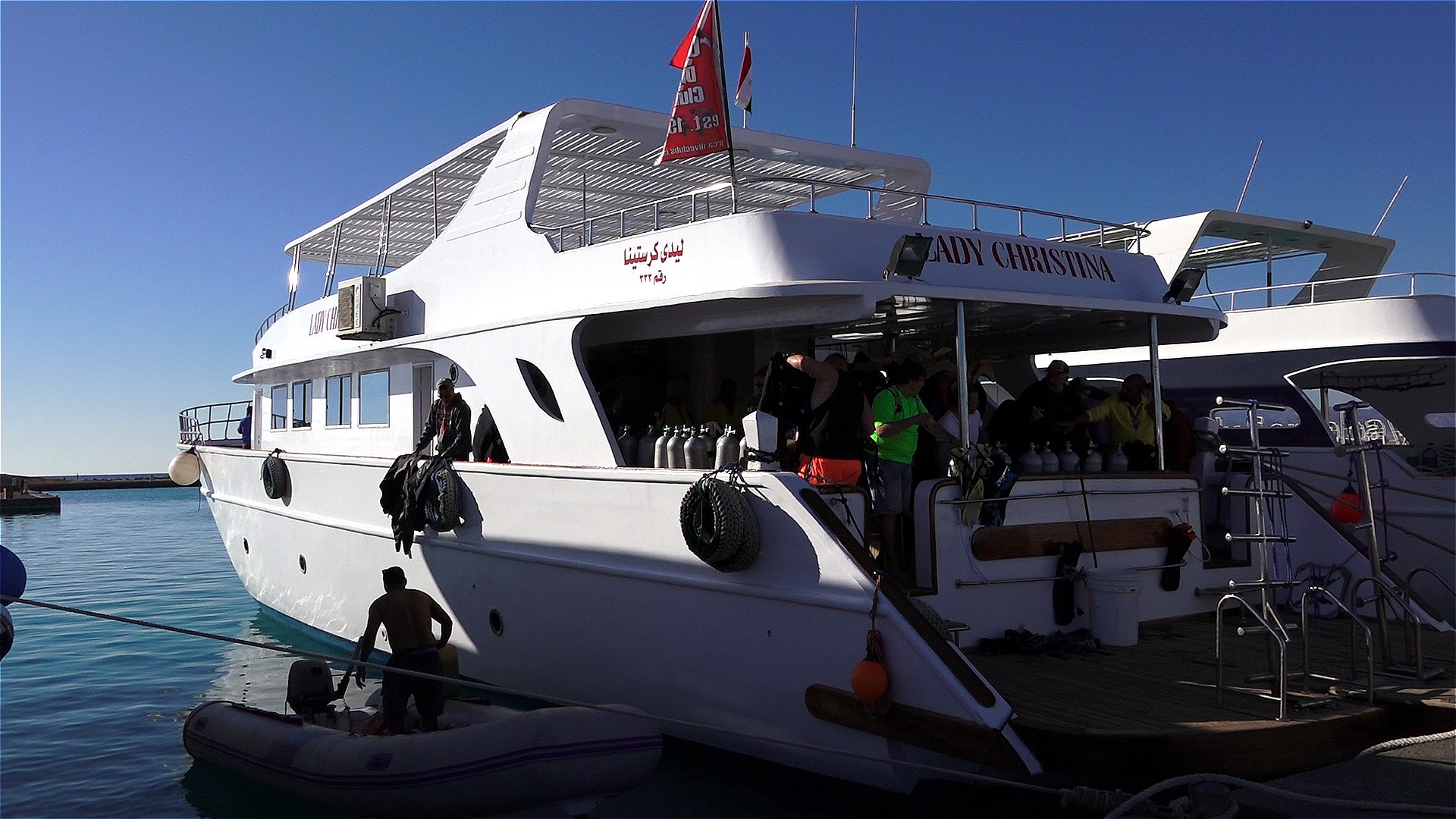
Diving wrecks for me is always one of mixed emotions. The excitement of diving a wreck is more than often tempered by the thought of loss of life when she sank. The Salem Express was a passenger ship and a roll-on/roll-off ferry travelling from Jeddah, Saudi Arabia to Safaga, Egypt. Most passengers were of poor class travelling home from their holidays while around 150 people were returning home from their pilgrimage to Mecca.

The ship struck a reef and sank within 20 minutes. Passengers were trapped below deck and the ship was filled with fear and panic.
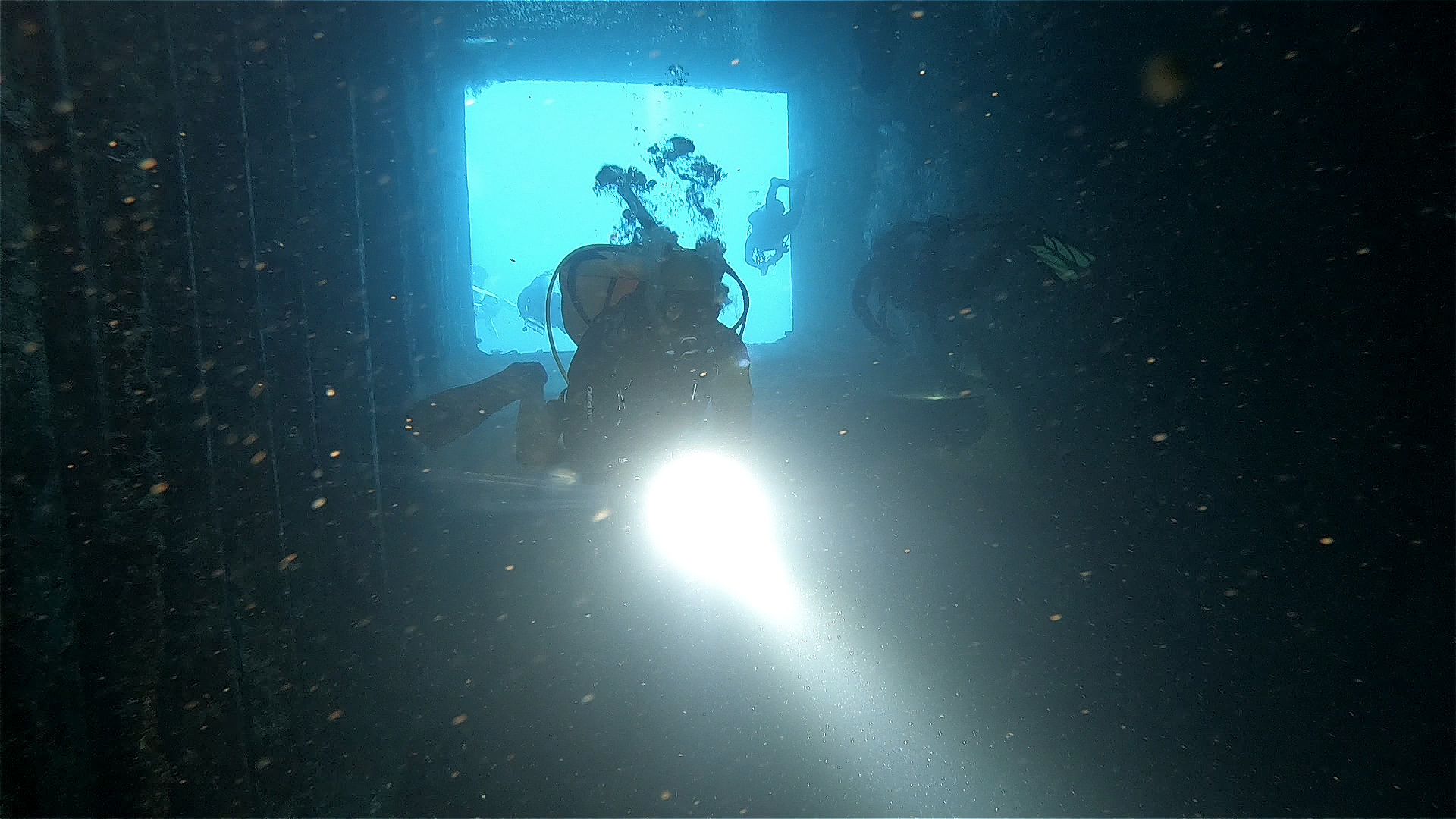
The wreck area is strewn with personal belongings from the crew and passengers such as a transistor radio and a flat iron for clothes. A diver at sometime has put them in a prominent place to be seen.

Tragically only one life boat was launched while the others went down with the ship. More than 600 men, women and children lost their lives here.
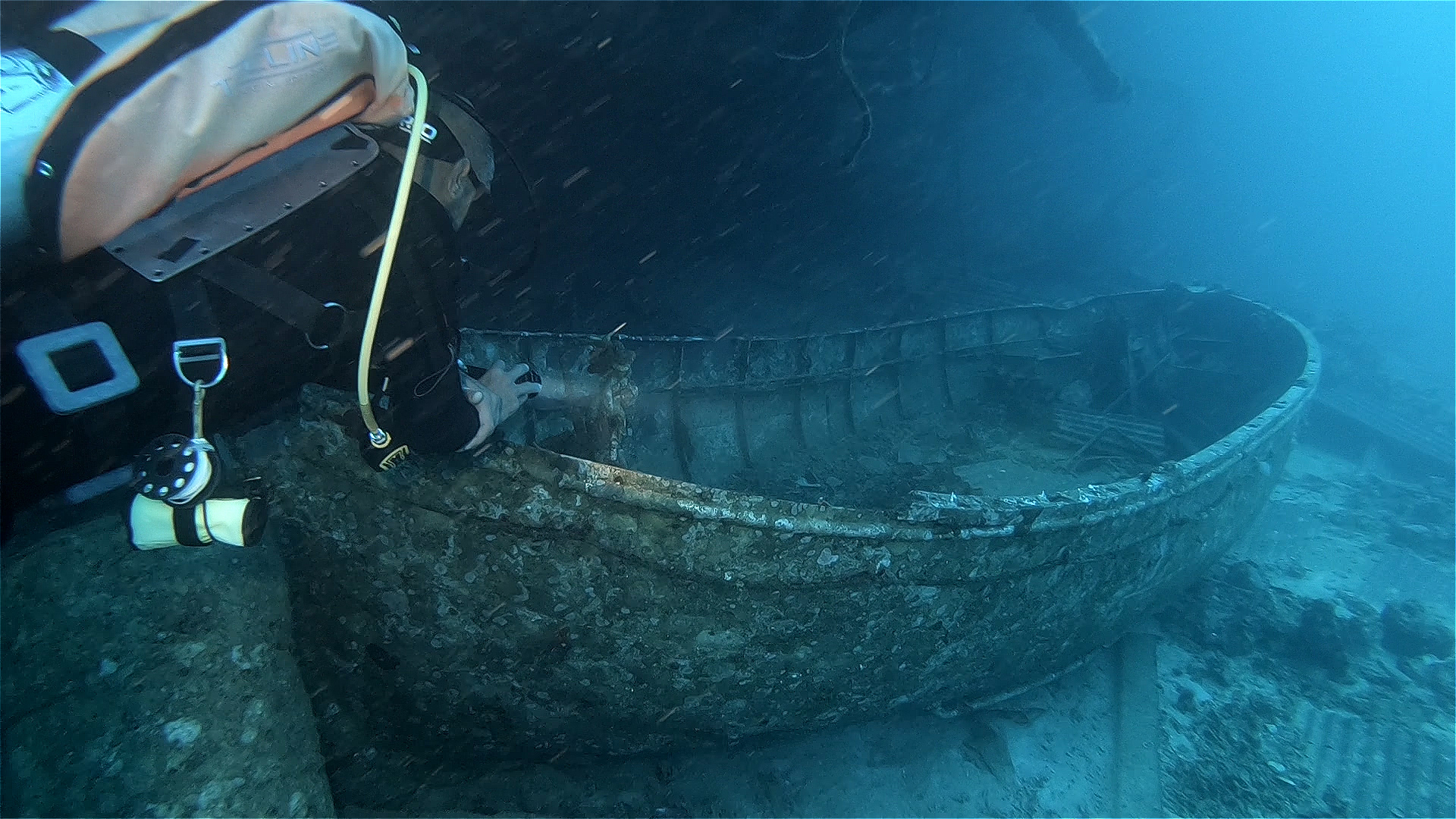
It’s a stark reminder that the sea can be unforgiving and so when we dive on such wrecks we should do so with humble regard.
Returning to the surface, shoals of fish are gathered under our boat and seem to be welcoming us back into the light.
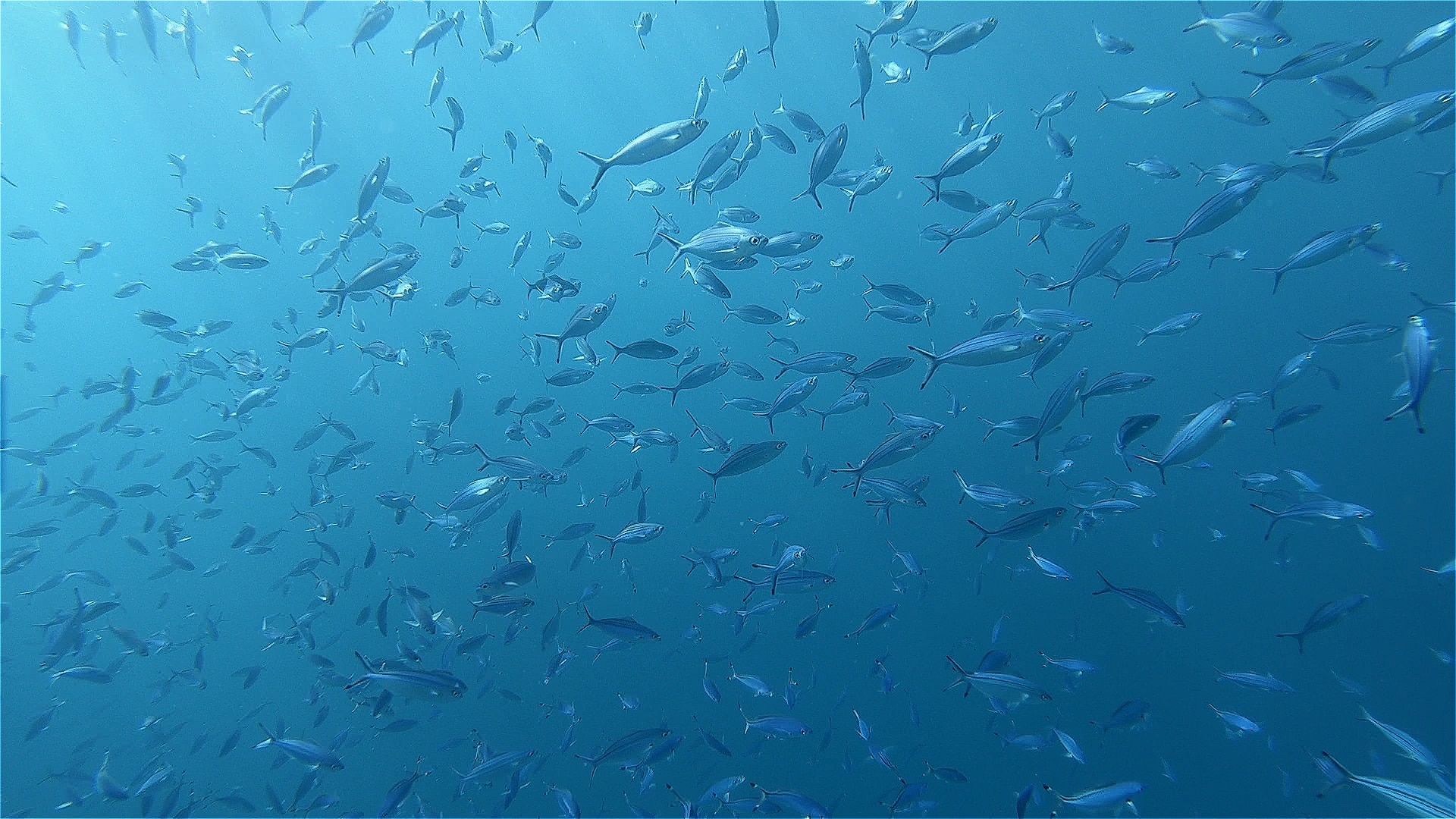
Back at the Breakers I sat in the dining area with a beer and a very good meal while my thoughts still remained with the day’s dive on the Salem Express.
Check in for part 3 tomorrow for Jeff’s last day of diving with Somabay on the off-shore reefs looking for turtles.
Book your next Red Sea dive adventure with SOMABAY! For more information, visit www.somabay.com.
Stay at the Breakers Diving & Surfing Lodge when you visit! For more information, visit www.thebreakers-somabay.com.
Find out more about ORCA Dive Clubs at SOMABAY at www.orca-diveclubs.com/en/soma-bay-en.
Blogs
TRAVEL BLOG: Jeff Goodman Dives SOMABAY, Part 1

For a week at the end of February I was invited to sample the diving with Orca Dive Club based at the Breakers Diving and Surfing Lodge by courtesy of SOMABAY.
Somabay covers an entire peninsula and is home to several resorts as well as residential compounds. Somabay caters for scuba diving as well as many other sports, including windsurfing, golf, sailing, go-carting, horse riding and many other activities.
All the activities are of a world-class standard and any or all of these can be booked directly from The Breakers.
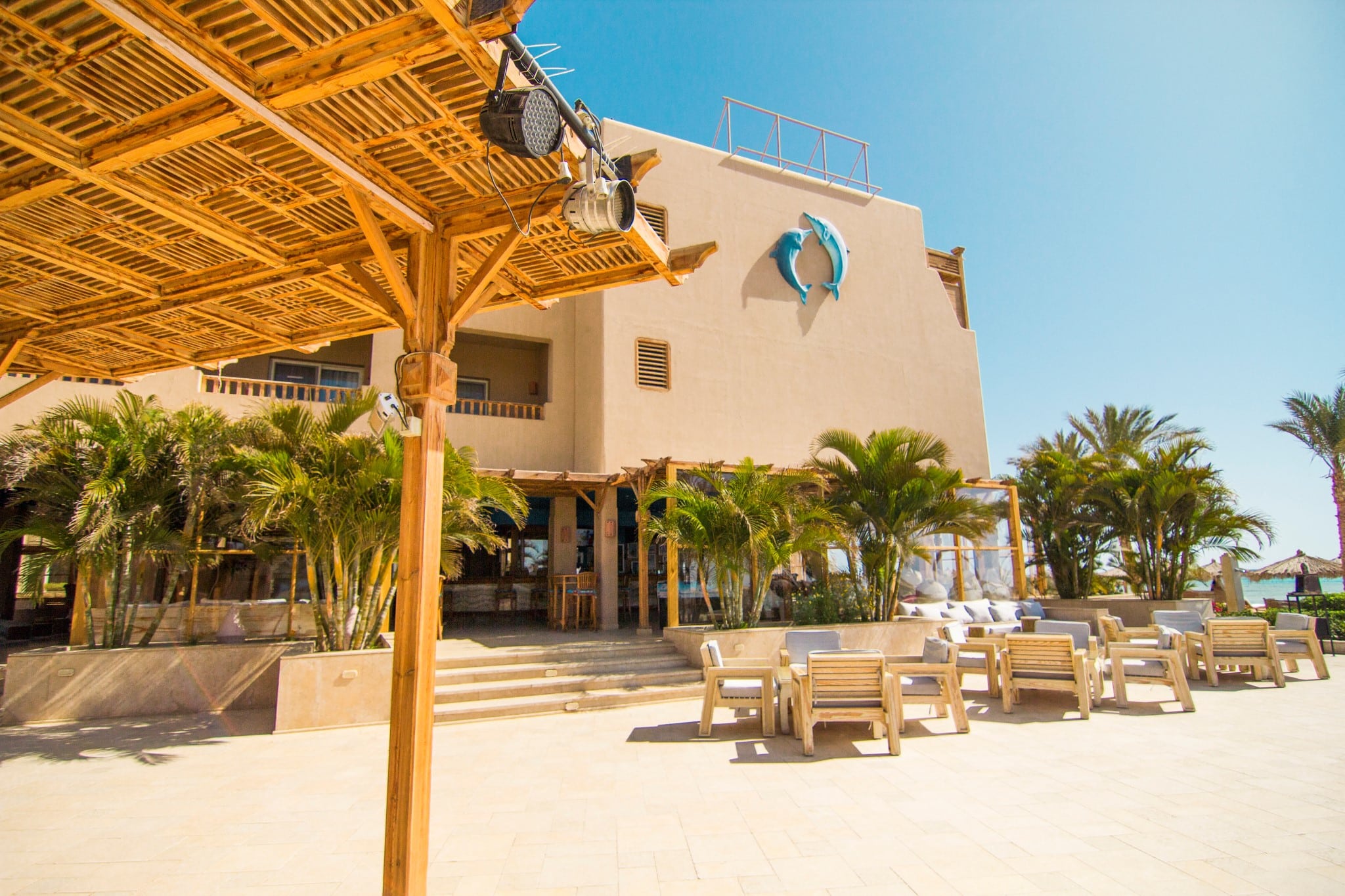
I took Easyjet from Bristol (UK) to Hurghada. Easyjet are not by any means my favourite airline but the flight was cheap and direct (except for the surprise extra £48 I was charged at the gate for my carry-on bag).
I was met at Hurghada airport by a driver and car and taken to the Breakers 28 miles (45Kilomaters) south along the coast. Once at the hotel I was too late for an evening meal and so a basic meal was delivered to my room. That and a beer from the fridge and I was fast asleep.
Early the next morning after breakfast I arrived for my rep meeting at the Orca Dive Center for 8.00am. I was immediately made to feel welcome, and after brief introductions I got some dive gear from the store, had a chat with my dive guide Mohamed and got ready to try the house reef situated at the end of a very long wooded pier where all diving gear and divers are taken out by buggies.
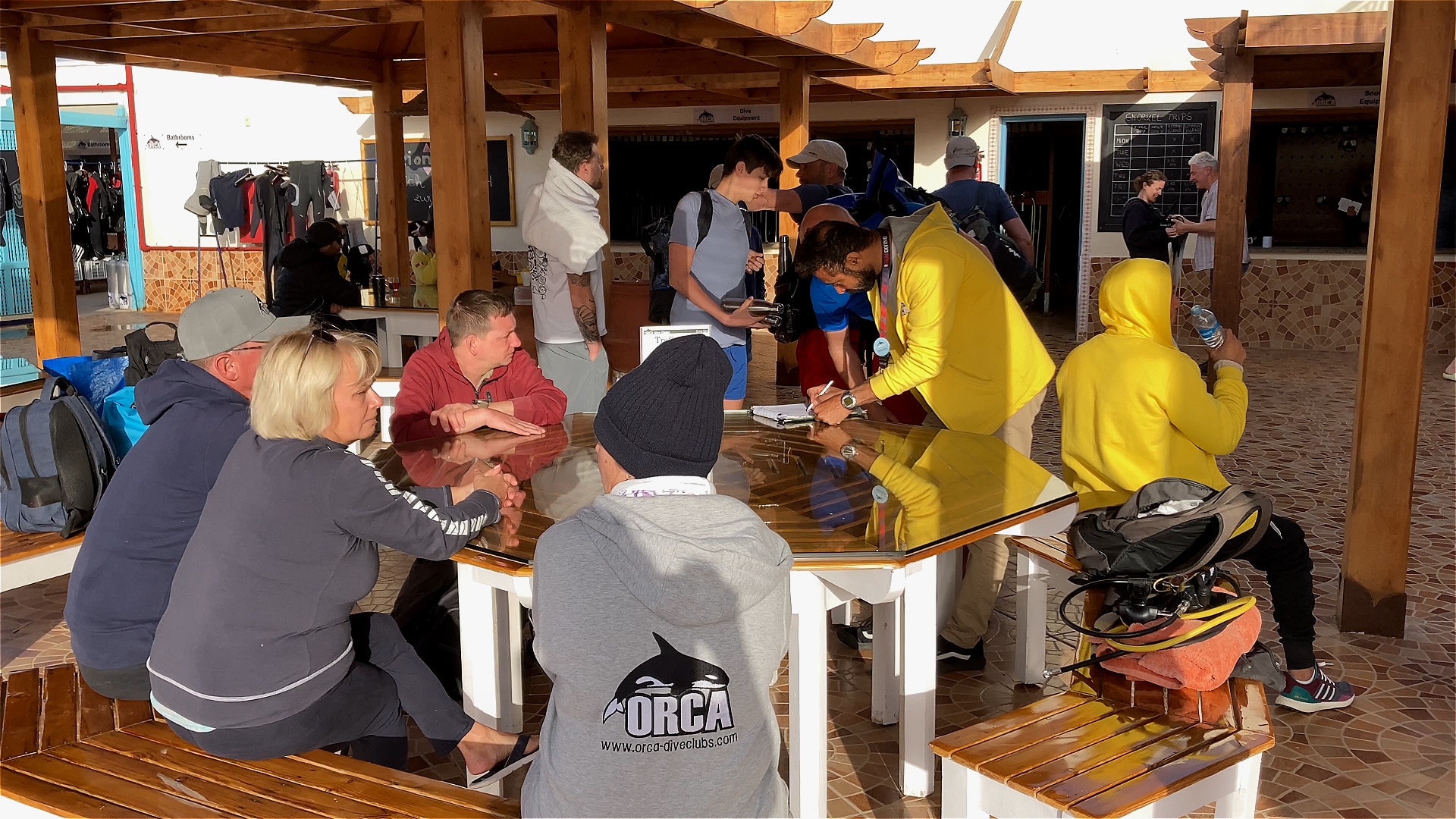
Once at the end of the pier, a helping hand from staff makes sure your gear is set and then it’s a short walk to the very end where you can either climb down a ladder of simply jump in the water next to the reef. The house reef extends both north and south giving a very easy and safe dive with plenty to see. At this time of the year the water temperature was a constant 22 degrees Centigrade and there was little or no current, so there were no issues in swimming back to the pier.
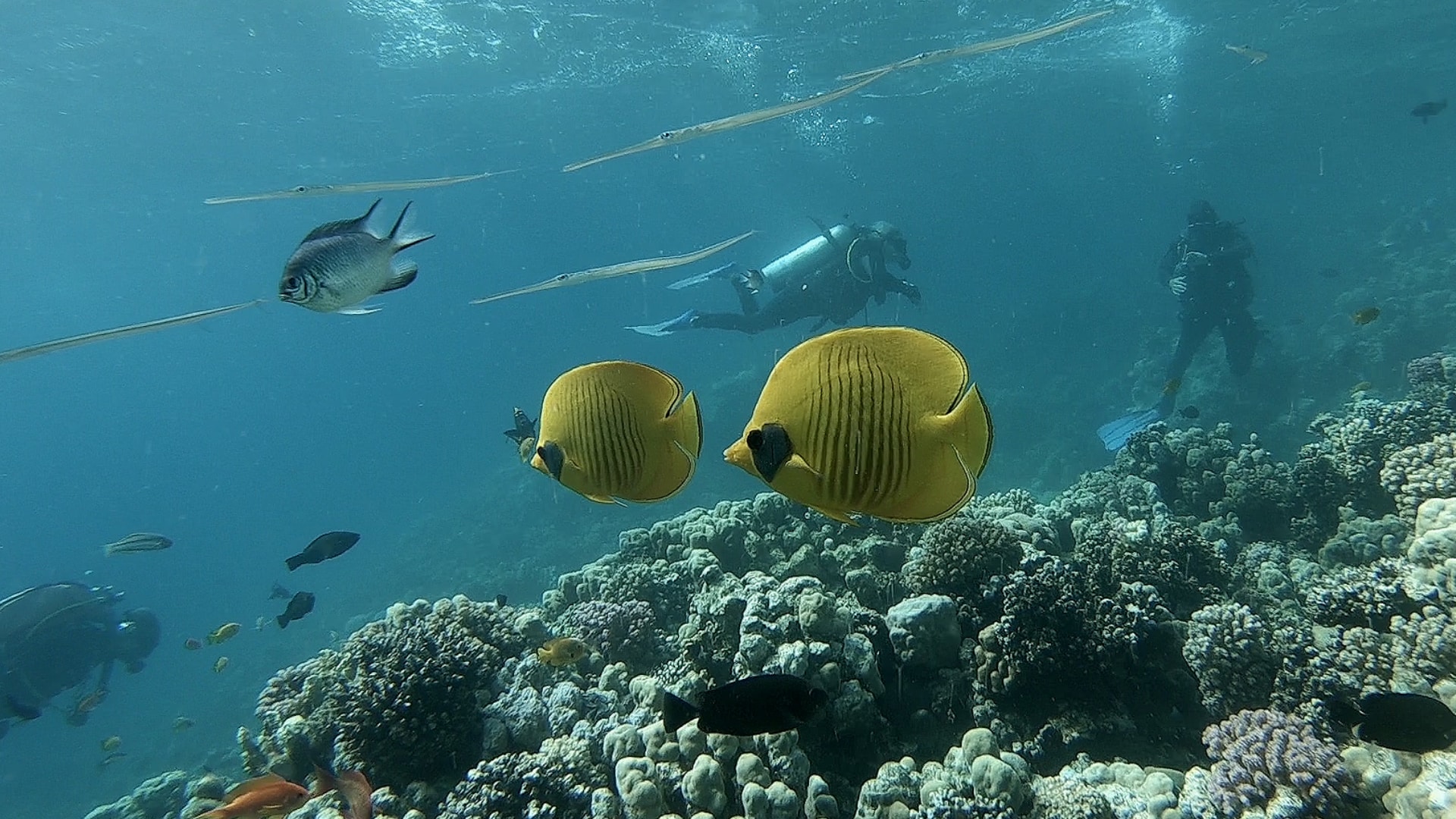
Quite a few divers were in dry or semi-dry suits, but being from the UK and used to the cold I found a 3mm wetsuit with a 3mm neoprene vest quite comfortable. Even after 50 years of diving I still find that first dive of a trip slightly nerving until I am actually underwater and then all becomes relaxed and I ease into auto diving mode. There was plenty to see with many of the Red Sea favourites along the way.
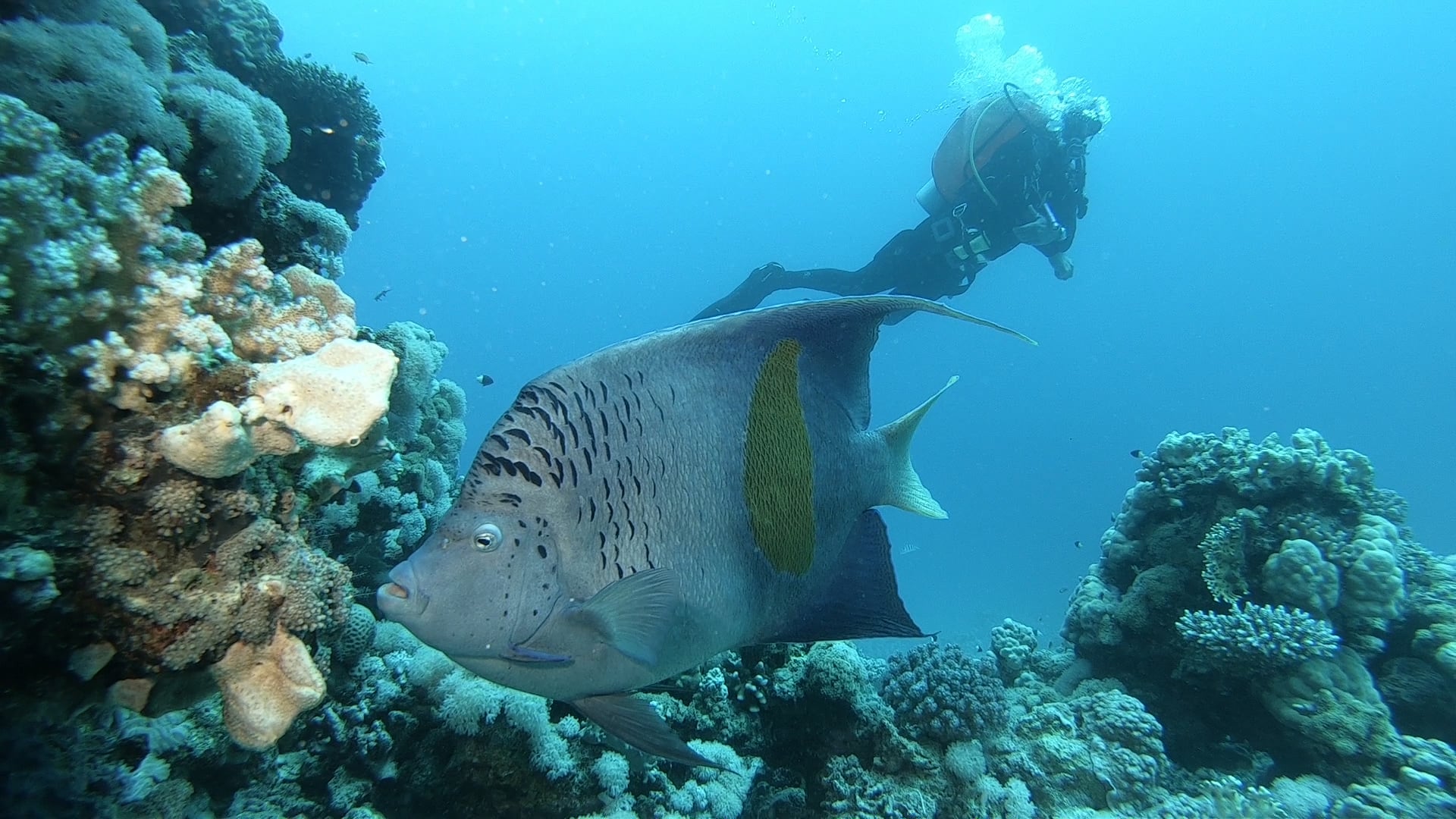
After the dive and a buggy ride back to the hotel for a very good buffet lunch I was back in the water, once again on the house reef for an afternoon dive.
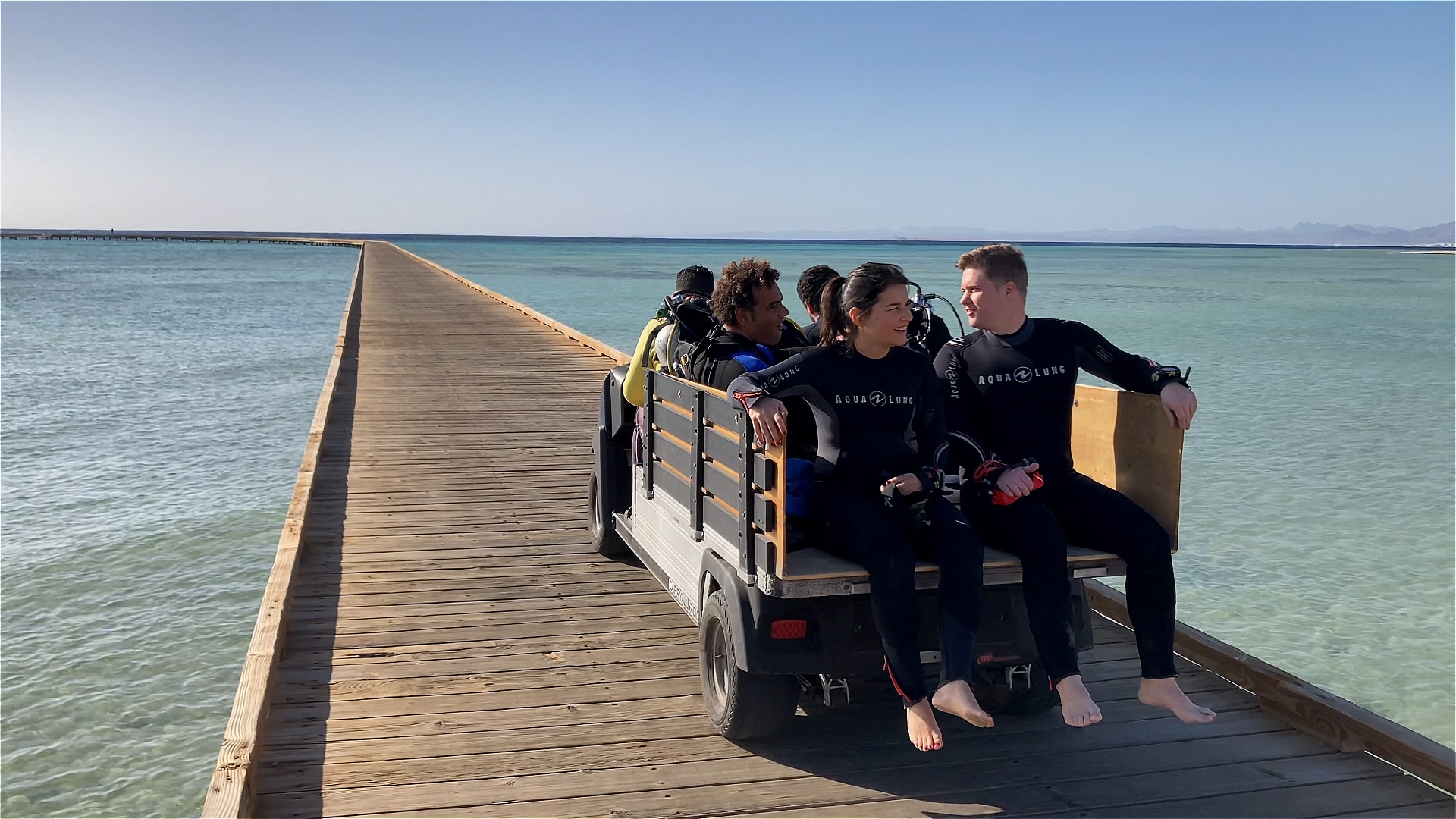
Check in for part 2 tomorrow when Jeff gets on a day boat and dives a few of the off-shore reefs.
Book your next Red Sea dive adventure with SOMABAY! For more information, visit www.somabay.com.
Stay at the Breakers Diving & Surfing Lodge when you visit! For more information, visit www.thebreakers-somabay.com.
Find out more about ORCA Dive Clubs at SOMABAY at www.orca-diveclubs.com/en/soma-bay-en.
-

 News3 months ago
News3 months agoHone your underwater photography skills with Alphamarine Photography at Red Sea Diving Safari in March
-

 News2 months ago
News2 months agoCapturing Critters in Lembeh Underwater Photography Workshop 2024: Event Roundup
-

 Marine Life & Conservation Blogs2 months ago
Marine Life & Conservation Blogs2 months agoCreature Feature: Swell Sharks
-

 Blogs1 month ago
Blogs1 month agoMurex Resorts: Passport to Paradise!
-

 Gear News3 months ago
Gear News3 months agoBare X-Mission Drysuit: Ideal for Both Technical and Recreational Divers
-

 Blogs2 months ago
Blogs2 months agoDiver Discovering Whale Skeletons Beneath Ice Judged World’s Best Underwater Photograph
-

 Gear Reviews2 months ago
Gear Reviews2 months agoGear Review: Oceanic+ Dive Housing for iPhone
-
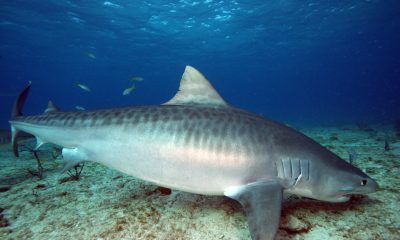
 Blogs3 months ago
Blogs3 months agoThe Thrilling Encounter with Tiger Sharks at Beqa Lagoon’s ‘The Colosseum’ with Coral Coast Divers



